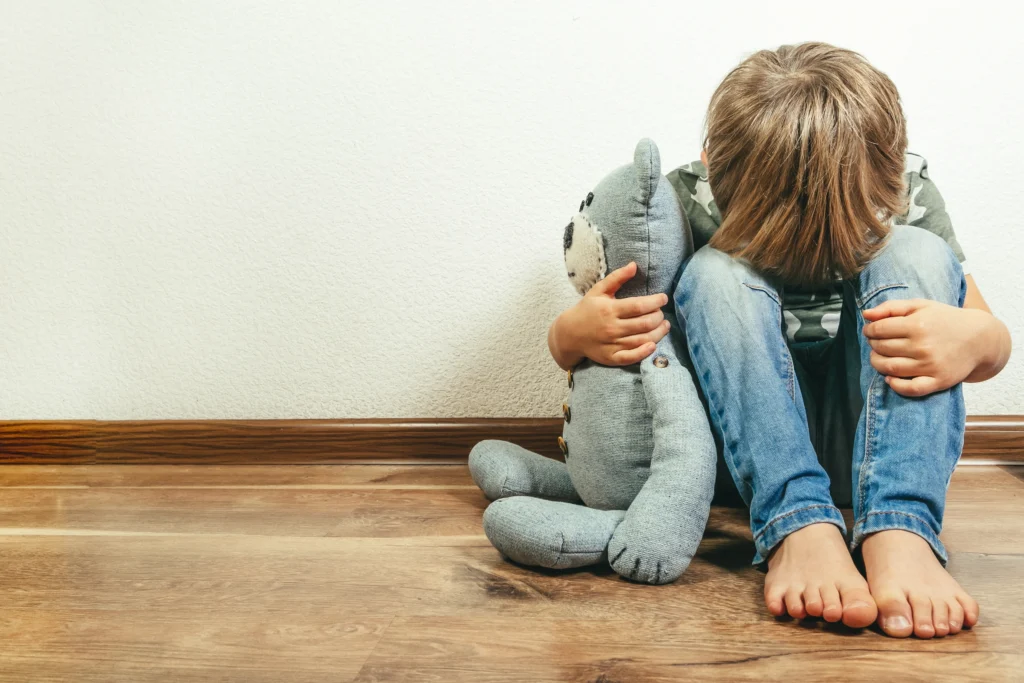
The death of a loved one can impact people in a variety of ways. Children and adults deal with grief and may find unique ways to cope with the loss. For younger children, grief can be an overwhelming experience, adults may need to help children through grief.
Dealing with a death is emotional for anyone, but helping children through grief while an adult is grieving too can be extremely difficult. While children are resilient, there are some ways to help them work through their feelings and avoid trauma from forming. In this blog, we will discuss the stages of grief, how people grieve differently, and how to talk to a child about death.
The Stages Of Grief
Understanding the stages of grief can help adults and children better navigate their feelings. While not everyone grieves in the exact same way, we each experience some emotions tied to the 5 stages.
The stages of grief include:
- Denial
- Anger
- Bargaining
- Depression
- Acceptance
Some individuals may experience these stages before the loved one has passed. When helping children through grief, feelings of anger, depression, violence, anxiety, withdrawal, and frustration are all normal. If some of these emotions are new to a child, they may struggle to communicate them effectively causing them to act out or throw a tantrum.
All Children Will Grieve Differently
Grief is not a linear process for anyone. One of the most important things to remember when children experience grief is that their emotions will not be the same as another child. Even adults will experience different emotions than children and can even grieve longer than children.
Some children may have a better understanding of death than others. Talking about your feelings with a child and listening to theirs will help you know how to best support them. Some children may not truly feel the loss until months or years in the future.
During the grieving process, children may regress back into old habits or “development” stages. For example, younger kids may start to wet the bed or use baby talk. Some children may struggle in school, sleep longer, or struggle to go to sleep. All of this is normal but can be helped with proper communication or therapy.

Be Direct
Children are smart, so dancing around the topic is more damaging than it is helpful. When a death occurs, it is best to be direct and answer any questions a child may have. Using euphemisms can make death an even scarier thing for children. After death, this is a good time to teach coping skills that children will need later in life. Even if you don’t have all the answers, tell a child that you will figure it out together.
Listen Intently And Validate Feelings
Listening to a child will help facilitate the healing process. Many of us want to be listened to and have someone validate our feelings, not solve the problem. During grief, children may feel complex emotions that are new to them. Listening and doing your best to understand their concerns will make them feel less alone. Creating a safe space for them to share will also allow the child to speak up when issues arise in the future.
Find A Grief Support Group
If we feel ill-equipped to handle our own grief and help children through grief, finding a support group can help. Support groups are often facilitated by a counselor or therapist and are a safe space for people to learn from one another while sharing their fears. Support groups for children will show that there are others who are also dealing with grief.
Family therapy can also be helpful for children experiencing grief. Working with a therapist and seeing all family members share their emotions will help a child feel less alone in their sadness. A therapist can also help the family come together or give parents tips on how to aid in the child’s grief process.
Be Patient
Again, it is important to remember that healing is not linear, especially as a child. Losing someone close to you will continue to affect their loved ones for the rest of their lives, so patience is key when helping children through grief. Children will have good days and bad days, so give them grace when they seem to regress in the healing process.

Don’t Underestimate The Child’s Ability To Cope
While adults should help children when necessary, children will be able to form their own opinions and core values as they grow. Letting grief be a learning and growing experience will help children grow into mentally healthy adults.
Grief Counseling From Red Willow Counseling And Recovery
Our team of therapists understands that a loss of any kind can be very emotional. Our specialists can work with children, teens, and adults who are experiencing grief. When dealing with a loss, other mental health issues may arise. Red Willow takes all of this into consideration when formulating your individualized treatment plan. Reach out to us to schedule your therapy appointment today.





